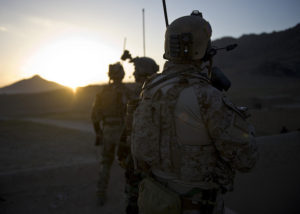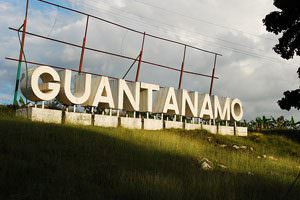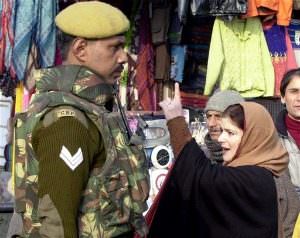The Face of Torture
Seven years after the 9/11 attacks, if we were to seek a portrait that is emblematic of the way the U.S. has tried -- and failed -- to bring those responsible for the heinous plot to justice, we would have to produce a photograph of Mohammed al-Qahtani.WASHINGTON — For weeks after the attacks of Sept. 11, 2001, when images of twisted metal and smoldering debris still filled television screens and the wail of bagpipes at firefighters’ funerals sounded day after day, there was one face that seemed to embody the terror. It was that of Mohamed Atta, ringleader of the suicide hijackers, with his steely eyes and tight lips that appeared to reflect the evil within.
Seven years later, if we were to seek a portrait that is emblematic of the way the United States has tried — and failed — to bring those responsible for the heinous plot to justice, we would have to produce a photograph of Mohammed al-Qahtani.
If such a photo were made public, it would probably show a battered man with signs of diminished mental capacity, a man who authorities concede was so badly abused — those outside the Bush administration call his treatment torture — that he will not be tried by a military commission with other alleged plotters of the 9/11 attacks. The Pentagon has formally dropped charges in the case against Qahtani, conceding that most of the evidence it has came from Qahtani’s own coerced statements, made after abusive interrogations.
“He’s in very poor condition mentally and I would say even physically,” says Gitanjali Gutierrez, a lawyer with the Center for Constitutional Rights who is representing Qahtani in other pending cases. She said she could not be more specific about his condition because the notes she took on her last visit with him at Guantanamo Bay, Cuba, have yet to be declassified.
For years, military and law enforcement authorities have considered Qahtani a prime catch. He was dubbed the “20th hijacker” after it came to light — only after the attack — that he had been stopped by a suspicious immigration inspector at the Orlando, Fla., airport in August 2001 and refused admittance to the United States. Following the attacks, he was caught up in the international sweeps and brought to Guantanamo, where the Bush administration has held hundreds of men it suspects of terrorist ties — without trial or charge, and without showing evidence against them.
No case that details Qahtani’s supposed role in the 9/11 plot ever has been presented. But the record of his abuse at the hands of American military interrogators is well known. The 84-page log of his interrogations, posted on the Center for Constitutional Rights’ Web site, reveals that he was deprived of sleep and kept in extreme isolation. He was subjected to forced nudity in front of female interrogators, forced to bark like a dog and dance with a mask on his face, held in stress positions for long periods and placed in tight restraints for months. The aggressive use of dogs against Qahtani and his “intense isolation” so troubled FBI agents in the fall of 2002 that a deputy assistant FBI director later complained to Army officials. “By late November, the detainee was evidencing behavior consistent with extreme psychological trauma (talking to nonexistent people, reporting hearing voices, crouching in a corner of the cell covered with a sheet for hours on end),” T.J. Harrington, the deputy assistant, wrote in a memo. Harrington wondered if the interrogation techniques had been approved by the Defense Department.
We now know, of course, that they were approved by the highest authorities, including Defense Secretary Donald Rumsfeld. A series of legal memos written for the White House sought to justify them as well.
We are months away from the seventh anniversary of the attacks that stunned humanity — and sent the United States on a path to two wars — without having brought to justice a single individual alleged to be directly implicated in the crimes. The cases of five others who are considered to be 9/11 “masterminds” (Qahtani was never put in that category) are only now moving forward in a military commission system that is being challenged on several legal fronts.
As for Qahtani, he is still considered an “enemy combatant” and so can be held at Guantanamo under the Bush administration’s unique theory that it may hold whomever it wants for as long as it wants during the war on terror. American taxpayers pick up the bill for his care and that of about 270 other detainees still at the facility. It is a burden from which the next president may bring us relief, but not absolution for having condoned the unconscionable.
Marie Cocco’s e-mail address is mariecocco(at)washpost.com.
© 2008, Washington Post Writers Group
Your support matters…Independent journalism is under threat and overshadowed by heavily funded mainstream media.
You can help level the playing field. Become a member.
Your tax-deductible contribution keeps us digging beneath the headlines to give you thought-provoking, investigative reporting and analysis that unearths what's really happening- without compromise.
Give today to support our courageous, independent journalists.







You need to be a supporter to comment.
There are currently no responses to this article.
Be the first to respond.